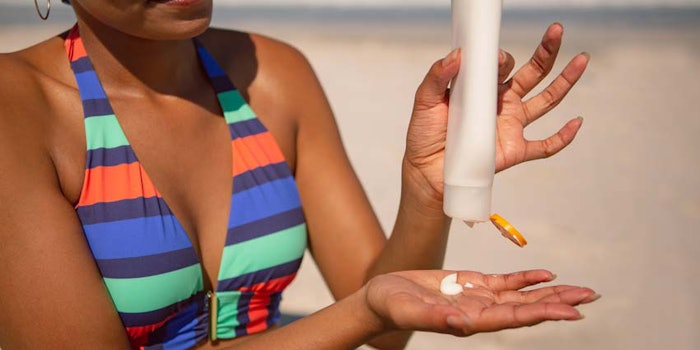
On September 24, 2021, The U.S. Food and Drug Administration (FDA) announced steps it is taking to improve the quality, safety and efficacy of sunscreens as part of its implementation of new authorities for certain over-the-counter (OTC) drugs.
In a press statement, the FDA noted in the short term, these authorities essentially preserve status quo marketing conditions for sunscreens. However, the agency has proposed revisions and updates to those requirements related to maximum SPF values, active ingredients, broad spectrum requirements and product labeling, among other provisions.
Acting FDA Commissioner Janet Woodcock, M.D., stated, “Today’s activities represent a key milestone in our implementation of transformative new authorities related to OTC drugs that will allow us to continue ensuring that sunscreens are safe and effective for frequent, life-long use and provide consumers with the protection they expect from these products. We are committed to using our new authorities to help meaningfully advance innovative, safe and effective options for consumers and secure a robust OTC marketplace.”
Background: The CARES Act
The 2020 Coronavirus Aid, Relief and Economic Security (CARES) Act reformed and modernized the way sunscreens that are marketed without approved applications are regulated in the United States. The Act establishes a deemed final order for sunscreens that along with other requirements established by the CARES Act, sets the current requirements for marketing these OTC sunscreen products.
The FDA explained the CARES Act did not change the scientific standards for determining whether a sunscreen may be legally marketed without an approved application. OTC orders establish conditions under which the FDA permits certain OTC drugs to be marketed without approved new drug applications because they are generally recognized as safe and effective (GRASE), so long as they comply with all other applicable requirements.
The deemed final order for sunscreens includes certain requirements about active ingredients from the 1999 Final Monograph regulation for OTC sunscreen products, which never took effect. It also includes labeling and effectiveness requirements from a final 2011 labeling and effectiveness testing rule.
Sunscreen Compliance and Updates
The deemed final order essentially preserves the pre-CARES status quo marketing conditions for these sunscreens, as, before CARES was passed, sunscreens were marketed according to nearly identical terms that were described in an FDA enforcement discretion policy. For this reason, the FDA believes that most sunscreens on the market are in compliance with the deemed final order. This order will remain in effect until the FDA issues another final order revising it.
The FDA is announcing the availability of the proposed order it is using today, Sept. 24, as a vehicle to efficiently transition its ongoing consideration of the appropriate requirements for OTC sunscreens marketed without approved applications from the previous rulemaking process to this new order process.
The provisions in the new proposed order are therefore substantively the same as those described in the FDA’s 2019 proposed rule on sunscreens and are aimed at bringing sunscreens marketed without FDA-approved applications up to date with the latest science to better ensure consumers have access to safe and effective sunscreen products.
Ingredients and Dosage Forms
More specifically, the order proposes to update the GRASE status for the 16 active ingredients listed in the deemed final order. It also proposes dosage forms that are GRASE for use as sunscreens to include oils, lotions, creams, gels, butters, pastes, ointments and sticks, and proposes GRASE status for spray sunscreens, subject to testing and labeling requirements.
The order’s proposals related to SPF and broad spectrum are designed to ensure that consumers have access to sunscreens with adequate ultraviolet A rays (UVA) protection, given the growing body of data linking UVA exposure to skin cancers and other harms. The order also proposes updates to how products are labeled to make it easier for consumers to identify key product information.
Soliciting Comments
The agency will consider comments on the proposed order submitted during a 45-day public comment period before issuing a revised final order (and is considering all comments timely submitted to the 2019 proposed rule to be constructively submitted to the proposed order). The CARES Act specifies that the effective date for the revised final order cannot be earlier than one year after its issuance.










